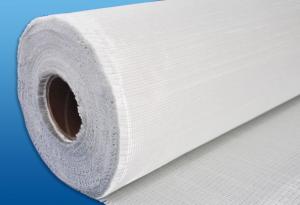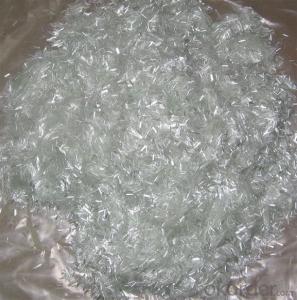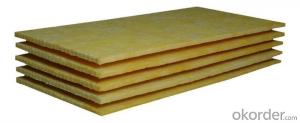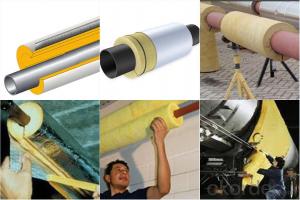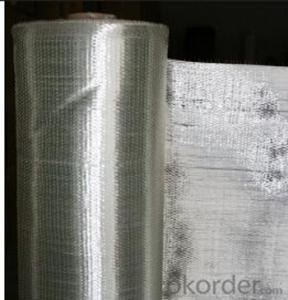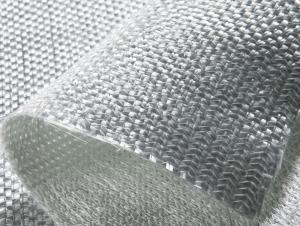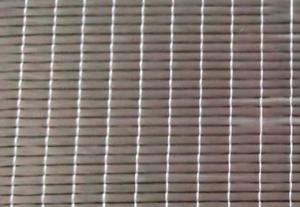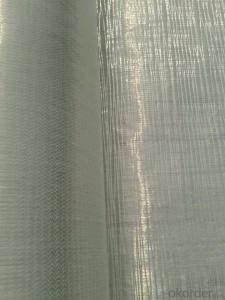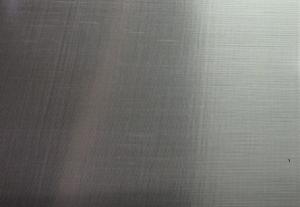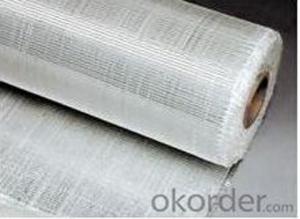Fiberglass Mat Tissue Unidirectional Fabric 600gsm 1524mm
- Loading Port:
- Shanghai
- Payment Terms:
- TT or LC
- Min Order Qty:
- 5000 kg
- Supply Capability:
- 50000 kg/month
OKorder Service Pledge
OKorder Financial Service
You Might Also Like
Structure of Fiberglass Multiaxial Fabric-UD Description:
An engineering material, which has many excellent characterstics, such as anti-burning, corrosion resistent, stable structure, heat-isolating, minimum elongated shrinkage, high intensity, etc. This new material product has already covered many domains such as electric appliance, electronic, transportation, chemical engineering, architectural engineering, heat insulation, sound absorption, fire prevention and environmental protection, etc. According to fabric organizational structure and appearance, there are such kind of products: plain weave, twill weave, satin weave, gauze weave.
Main Features of the Fiberglass Multiaxial Fabric-UD:
1)Plain veave,even thickness and low fuzz;
2)High strength in both warp and weft direction;
3)Incombustibility,corrosion resistance and heat resistance;
4)E-Grade Fabric (E-fiberglass Textile Cloth) has excellent electricity insulation property.
Fiberglass Multiaxial Fabric-UD Images:
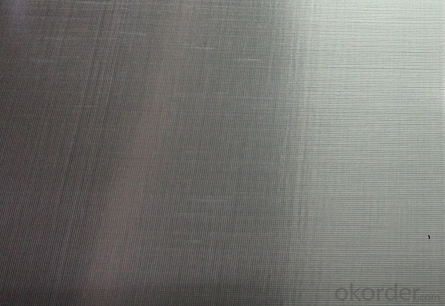
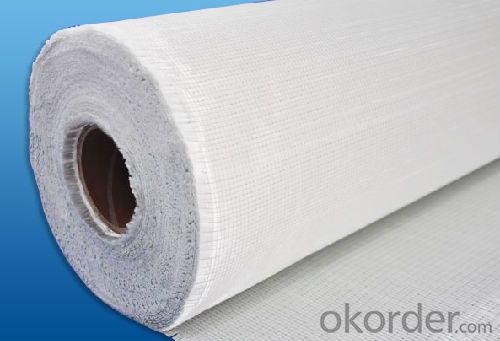
Unidirectional Specification:
Code | Total weight g/m2 | Weight of each layer, g/m2 | Width mm | ||||
0° | 90° | +45° | -45° | Chopping | |||
E-L300 | 350 | 300 | 50 | 200~2600 | |||
E-L350 | 400 | 350 | 50 | 200~2600 | |||
E-L400 | 450 | 400 | 50 | 200~2600 | |||
E-L450 | 500 | 450 | 50 | 200~2600 | |||
E-L500 | 550 | 500 | 50 | 200~2600 | |||
E-L600 | 650 | 600 | 50 | 200~2600 | |||
E-L650 | 700 | 650 | 50 | 200~2600 | |||
E-L900 | 930 | 880 | 50 | 200~2600 | |||
E-L700/200 | 950 | 700 | 50 | 200 | 200~2600 | ||
E-T200 | 200 | 200 | 200~2600 | ||||
E-T450 | 450 | 450 | 200~2600 | ||||
E-T500 | 500 | 500 | 200~2600 | ||||
E-TM300/300 | 600 | 300 | 300 | 200~2600 | |||
E-TM600/450 | 1050 | 600 | 450 | 200~2600 | |||
E-LM750/200 | 950 | 750 | 200 | 200~2600 | |||
FAQ of Unidirectional
1. Why Choose us?
CNBM is a stated own company, provide the guarantee for the best quality, best service and safety business.
2. How will we guarantee the quality?
a, ISO 9001-2008 quality control system;
b, Strict and regular quality control in production;
c, Inspeciation when loading into container before shippment;
d, Sample stock for one year for quality tracing and record.
3. What is your MOQ?
Our MOQ is one pallet.
4. Can you provide sample?
Yes, samples are in stock. we can offer free sample for you.
5. Payment terms?
We can accept L/C, T/T etc.
6. Do you offer OEM service?
Yes, we can print customers’ logo on the packaging;
And the size and specification can be produced and design according to your demand.
- Q: Is fiberglass mat tissue suitable for wind energy applications?
- Yes, fiberglass mat tissue is suitable for wind energy applications. It is commonly used as a reinforcement material in wind turbine blades due to its high strength-to-weight ratio, excellent fatigue resistance, and ability to withstand harsh environmental conditions. The fiberglass mat tissue enhances the structural integrity and durability of the blades, enabling them to efficiently capture wind energy and sustain long-term operation.
- Q: What is the UV resistance of fiberglass mat tissue?
- The UV resistance of fiberglass mat tissue may vary depending on the specific formulation and manufacturing process employed. Generally, fiberglass mat tissue is renowned for its outstanding ability to withstand ultraviolet (UV) radiation. The mat's fiberglass strands typically receive a coating of resin or binder, which affords additional safeguard against UV degradation. This coating acts as a barrier, preventing the fibers from deteriorating or becoming brittle under sunlight exposure. Moreover, the dense and tightly woven construction of the fiberglass mat tissue itself grants a certain level of inherent UV resistance. Nonetheless, it is crucial to note that extensive exposure to intense UV radiation can still result in some degree of deterioration over time. As such, it is advisable to refer to the specific product specifications or manufacturer's guidelines for precise information regarding the UV resistance of a particular fiberglass mat tissue.
- Q: Is fiberglass mat tissue safe to handle?
- Yes, fiberglass mat tissue is generally safe to handle. However, it is important to take certain precautions such as wearing protective gloves and a mask to avoid skin irritation or inhalation of fibers.
- Q: Can fiberglass mat tissue be used for making lightweight panels?
- Fiberglass mat tissue is capable of being utilized in the creation of lightweight panels. Comprised of delicate glass fibers that have been bound together with a resinous binder, this thin and lightweight material is commonly employed in the construction field to bolster surfaces and enhance the strength of diverse applications. When applied to panel manufacturing, fiberglass mat tissue proves to be an excellent selection for generating lightweight panels. The material's slim and pliable nature permits it to be seamlessly integrated into panels without imposing substantial weight. Furthermore, fiberglass mat tissue boasts exceptional strength properties, which contribute to the panels' overall structural integrity. Moreover, fiberglass mat tissue furnishes the panels with insulation and soundproofing capabilities, making them ideal for situations necessitating these attributes. Additionally, the material exhibits resistance towards corrosion and moisture, thereby augmenting the panels' durability and longevity. In summary, fiberglass mat tissue is a versatile and lightweight material that can be effectively employed in the production of lightweight panels. Its strength, flexibility, insulation properties, and resistance to corrosion and moisture render it a suitable choice for a range of applications in industries such as construction, automotive, aerospace, and marine.
- Q: Can fiberglass mat tissue be used for reinforcing fiberglass boats?
- Yes, fiberglass mat tissue can be used for reinforcing fiberglass boats. It is often used in boat construction and repair to strengthen the hull and improve its durability. The mat tissue is typically applied with resin to create a strong and rigid composite structure.
- Q: What is the thermal conductivity of fiberglass mat tissue?
- Fiberglass mat tissue typically exhibits a low thermal conductivity, which falls within the range of 0.03 to 0.05 W/m·K. Consequently, it serves as an excellent insulator, effectively impeding the flow of heat. Its favorable insulative properties render it suitable for various applications, including thermal insulation in buildings, industrial equipment, and appliances.
- Q: How does fiberglass mat tissue perform in terms of thermal resistance?
- Fiberglass mat tissue displays outstanding performance in terms of thermal resistance. Thanks to the inherent characteristics of fiberglass, such as its low thermal conductivity and high melting point, the mat tissue functions effectively as a shield against the transfer of heat. It efficiently hinders the conduction of heat, restricting the flow of thermal energy through the material. Consequently, fiberglass mat tissue proves to be a superb option for insulation applications that require significant thermal resistance, such as in the construction of buildings, industrial machinery, and automotive parts. Furthermore, fiberglass mat tissue is renowned for its fire-resistant properties, which further enhances its capability to endure high temperatures and provide exceptional thermal insulation.
- Q: Is fiberglass mat tissue suitable for HVAC insulation?
- Yes, fiberglass mat tissue is suitable for HVAC insulation. Fiberglass mat tissue is a lightweight and flexible material that is commonly used in insulation applications due to its excellent thermal insulation properties. It provides effective heat insulation, helping to maintain a comfortable and energy-efficient environment within HVAC systems. Additionally, fiberglass mat tissue is resistant to moisture and does not promote the growth of mold or mildew, making it a suitable choice for HVAC insulation where condensation and moisture may be present. It is also easy to install and can be cut to fit around HVAC components, ensuring a proper and tight insulation seal. Overall, fiberglass mat tissue is a reliable and durable insulation material that is widely used in HVAC systems to enhance energy efficiency and thermal performance.
- Q: Is fiberglass mat tissue suitable for railway rolling stock?
- Yes, fiberglass mat tissue is suitable for railway rolling stock. Fiberglass mat tissue is a lightweight and durable material that is commonly used in the construction industry for various applications, including in the manufacturing of railway rolling stock. It offers excellent mechanical strength and resistance to corrosion, making it ideal for use in the harsh and demanding environments that railway rolling stock typically operates in. Additionally, fiberglass mat tissue has good thermal insulation properties, which can help to improve the energy efficiency of the rolling stock. Overall, fiberglass mat tissue is a suitable and reliable choice for the construction and maintenance of railway rolling stock.
- Q: How does fiberglass mat tissue compare to spray foam insulation?
- Fiberglass mat tissue and spray foam insulation are two different types of insulation materials with their own unique characteristics and benefits. Fiberglass mat tissue is a type of insulation made from woven strands of fiberglass. It is typically used in applications where thermal insulation is required, such as in walls, roofs, and attics. Fiberglass mat tissue is known for its high resistance to heat transfer, making it an effective insulator. It is also fire-resistant, which adds an additional safety benefit. On the other hand, spray foam insulation is a type of insulation that is applied as a liquid and expands into a solid foam. It can fill in small cracks and gaps, creating an airtight seal, which makes it an excellent choice for preventing air leakage and reducing energy loss. Spray foam insulation is also known for its excellent soundproofing qualities. In terms of installation, fiberglass mat tissue usually comes in large rolls or batts that need to be cut and fitted into place. It requires careful handling to ensure proper installation and may require the use of protective equipment, such as gloves and masks, as the fibers can cause skin and respiratory irritation. Spray foam insulation, on the other hand, is applied using specialized equipment that sprays the liquid foam onto the desired surface. It expands quickly, filling in any gaps or voids, and hardens within a short period of time. This makes it a more convenient option for insulating hard-to-reach areas or irregularly shaped spaces. When comparing the two, fiberglass mat tissue is generally more cost-effective, as it is less expensive to purchase and install compared to spray foam insulation. However, spray foam insulation provides better air sealing and can offer higher energy savings in the long run. In summary, fiberglass mat tissue and spray foam insulation have their own advantages and are suited for different insulation needs. Fiberglass mat tissue is a good option for thermal insulation, while spray foam insulation excels in air sealing and soundproofing. The choice between the two ultimately depends on factors such as budget, desired insulation performance, and the specific requirements of the project.
Send your message to us
Fiberglass Mat Tissue Unidirectional Fabric 600gsm 1524mm
- Loading Port:
- Shanghai
- Payment Terms:
- TT or LC
- Min Order Qty:
- 5000 kg
- Supply Capability:
- 50000 kg/month
OKorder Service Pledge
OKorder Financial Service
Similar products
Hot products
Hot Searches
Related keywords
